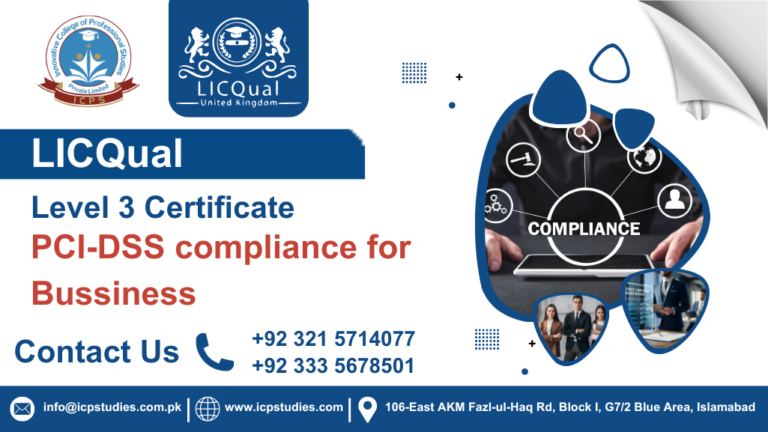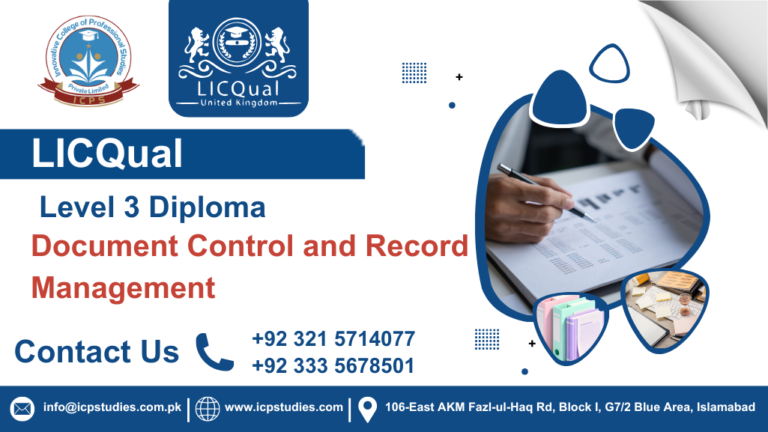Master the art of auditing
Looking to become a certified ISO 9001:2015 Quality Management System (QMS) Lead Auditor? Look no further! Our comprehensive course will provide you with all the knowledge and skills you need to excel in this exciting field.
At our training center, we understand the importance of quality management in today’s competitive business landscape. That’s why we’ve designed our ISO 9001:2015 QMS Lead Auditor course to meet the highest industry standards. With our expert instructors and hands-on approach, you’ll gain a deep understanding of the ISO 9001:2015 standard and learn how to effectively audit and improve a QMS.
Our course covers all aspects of the ISO 9001:2015 standard, including its key principles, requirements, and benefits. We’ll also teach you the auditing skills you need to assess the effectiveness of a QMS and identify areas for improvement. By the end of the course, you’ll be fully prepared to take the lead auditor exam and earn your certification.
Not only will our ISO 9001:2015 QMS Lead Auditor course enhance your skills and knowledge, but it will also give you a competitive edge in the job market. Employers across industries value employees with QMS auditing skills, and certification as an ISO 9001:2015 QMS Lead Auditor is a valuable addition to any resume.
So why wait? Enroll in our ISO 9001:2015 QMS Lead Auditor course today and take the first step towards an exciting and fulfilling career in quality management!
All About ISO 9001:2015 QMS Lead Auditor
Key Takeaways
Course Overview
The ISO 9001:2015 Quality Management System (QMS) Lead Auditor course represents a thorough training regimen meticulously tailored to equip individuals with the knowledge and skills imperative for auditing QMS in accordance with ISO 9001:2015 standards. Designed for those aspiring to attain lead auditor certification and conduct first, second, and third-party audits of quality management systems, this comprehensive program covers essential QMS fundamentals.
Encompassing the principles of ISO 9001:2015, the process-oriented approach to auditing, and the requisites for auditing management systems, participants delve into various facets of QMS auditing. They learn to meticulously plan, execute, report, and follow up on QMS audits while effectively evaluating and communicating audit findings.
Aligned with the criteria established by the International Register of Certificated Auditors (IRCA), the ISO 9001:2015 Quality Management System (QMS) Lead Auditor course holds global recognition, affirming individuals’ proficiency in conducting QMS audits efficiently and effectively.
In essence, this course serves as an indispensable resource for individuals seeking to enhance their auditing prowess and achieve lead auditor certification for quality management systems. It fosters a comprehensive understanding of QMS and empowers participants to conduct audits compliant with ISO 9001:2015 standards.
The entry requirements for the ISO 9001:2015 Quality Management System (QMS) Lead Auditor course typically include:
- Educational Background:
- A minimum of a high school diploma or equivalent; however, a degree in a relevant field (such as business management, quality management, or engineering) is often preferred.
- Professional Experience:
- A minimum of two years of work experience in a relevant field is typically required, including experience in a quality-related role.
- Prior Training:
- Completion of a recognized ISO 9001:2015 QMS Internal Auditor training course is usually required before enrolling in the Lead Auditor course.
- Understanding of ISO 9001:2015:
- Familiarity with the principles and requirements of the ISO 9001:2015 standard is essential.
- Language Proficiency:
- Proficiency in English, both written and spoken, is typically required. Non-native speakers may need to provide evidence of their language skills (e.g., an IELTS score of 6.0 or equivalent).
- Motivation Statement:
- A brief statement outlining the applicant’s interest in quality management and how the Lead Auditor training will contribute to their professional development may be encouraged.
- Organizational Support:
- For those seeking to become Lead Auditors, support from their organization for practical experience in conducting audits may be beneficial.
For the most accurate and specific information, it is advisable to consult the training provider or certification body offering the ISO 9001:2015 Lead Auditor training.
Mandatory Units
The ISO 9001:2015 Quality Management System (QMS) Lead Auditor course is designed to provide individuals with a comprehensive understanding of the ISO 9001:2015 standard and its requirements for implementing a quality management system. This course will enable participants to conduct effective audits of quality management systems in accordance with ISO 19011 and to manage an audit program.
Course Content:
- Introduction to ISO 9001:2015 Quality Management System
- Understanding the benefits of ISO 9001:2015
- Overview of the ISO 9001:2015 standard
- Understanding the context of the organization
- Understanding the needs and expectations of interested parties
- Understanding the process approach
- Requirements of ISO 9001:2015 Quality Management System
- Understanding the requirements of ISO 9001:2015
- Quality policy and objectives
- Planning and control of processes
- Resource management
- Measurement, analysis, and improvement
- Auditing Principles and Practices
- Principles of auditing
- Types of audits
- Audit planning and preparation
- Conducting an audit
- Reporting and follow-up
- Audit Program Management
- Establishing an audit program
- Managing audit teams
- Monitoring and improving the audit program
- Audit Reporting and Follow-up
- Writing audit reports
- Communicating audit findings
- Follow-up and corrective action
- Case Studies and Practical Exercises
- Applying the knowledge and skills gained in the course through practical exercises and case studies
Upon completion of this course, participants will be able to effectively plan and conduct audits of quality management systems in accordance with ISO 19011 and manage an audit program. This course will also provide participants with a comprehensive understanding of the ISO 9001:2015 standard and its requirements for implementing a quality management system, which is essential for professionals seeking to become certified lead auditors in this field.
Learning Outcomes
Learning Outcomes for ISO 9001:2015 Quality Management System (QMS) Lead Auditor Course
- Understand the fundamental principles and requirements of ISO 9001:2015 QMS.
- Identify the roles and responsibilities of an ISO 9001:2015 QMS lead auditor.
- Explain the audit process and techniques used in conducting an ISO 9001:2015 QMS audit.
- Understand the documentation requirements for ISO 9001:2015 QMS.
- Identify the different types of audit and their purpose.
- Develop an audit plan and prepare audit checklists.
- Conduct opening and closing meetings with auditee and audit team.
- Evaluate the effectiveness of corrective actions taken to address non-conformities.
- Identify and report audit findings and prepare audit reports.
- Understand the process for maintaining ISO 9001:2015 QMS certification.
- Apply ethical principles in conducting ISO 9001:2015 QMS audits.
- Demonstrate effective communication and interpersonal skills in conducting an ISO 9001:2015 QMS audit.
By mastering these learning outcomes, participants in the ISO 9001:2015 Quality Management System Lead Auditor course will be equipped with the knowledge, skills, and ethical principles required to conduct successful and effective ISO 9001:2015 QMS audits, which in turn will help organizations achieve and maintain certification to the ISO 9001:2015 QMS standard.
The ISO 9001:2015 Quality Management System (QMS) Lead Auditor course is designed for professionals and learners who want to develop advanced auditing skills, ensure organizational quality compliance, and contribute to continual improvement. This course equips participants to lead quality management audits, enhance organizational efficiency, and gain globally recognized certification.
Quality Managers
- Professionals responsible for implementing and maintaining quality management systems within their organizations.
- Learn to assess compliance with ISO 9001:2015 standards effectively.
- Identify areas for process improvement and implement corrective measures.
- Conduct and manage internal and external quality audits confidently.
- Strengthen organizational performance and customer satisfaction.
- Report audit findings to senior management accurately.
- Lead quality improvement initiatives to achieve operational excellence.
- Gain a recognized certification to enhance professional credibility.
Internal Auditors
- Individuals who conduct internal audits and want to advance their skills to lead QMS audits.
- Understand audit planning, preparation, and execution processes.
- Develop skills to identify non-conformities and recommend corrective actions.
- Learn to document audit findings clearly and professionally.
- Gain confidence in leading audit teams and managing audits independently.
- Enhance knowledge of ISO 9001:2015 requirements and quality principles.
- Improve decision-making related to quality management and compliance.
- Prepare for future roles as a certified Lead Auditor.
Compliance Officers
- Professionals ensuring organizations comply with quality regulations and ISO standards.
- Gain knowledge to monitor compliance effectively and reduce risks.
- Learn how audits support organizational adherence to quality standards.
- Identify gaps in processes and recommend improvements.
- Ensure corrective and preventive actions are implemented effectively.
- Enhance reporting and documentation skills for audits.
- Support organizational strategies for quality and operational excellence.
- Boost professional credibility with globally recognized certification.
Consultants
- Quality management consultants seeking to provide expert advisory services.
- Acquire advanced auditing knowledge to guide clients on ISO 9001:2015 compliance.
- Learn to evaluate processes and recommend improvements.
- Conduct audits for multiple clients across industries confidently.
- Gain credibility and recognition as a certified QMS Lead Auditor.
- Expand consulting services to include quality audit management.
- Support clients in achieving ISO 9001 certification.
- Develop leadership skills for managing audit teams and projects.
Senior Management & Executives
- Decision-makers seeking insights into how quality audits impact organizational performance.
- Understand audit results to improve business processes and efficiency.
- Ensure compliance with ISO 9001:2015 standards across departments.
- Support strategic quality improvement initiatives.
- Align quality audits with business objectives and risk management.
- Enhance corporate reputation through effective quality management.
- Promote a culture of continuous improvement and operational excellence.
- Make informed decisions based on audit findings and recommendations.
Students and Graduates
- Individuals pursuing careers in quality management, auditing, or operational excellence.
- Develop in-demand auditing skills aligned with international standards.
- Gain practical knowledge in conducting and reporting quality audits.
- Prepare for roles such as Lead Auditor, Quality Consultant, or Compliance Officer.
- Enhance employability in quality-focused organizations.
- Gain globally recognized certification to add value to resumes and portfolios.
- Learn to support organizations in achieving ISO 9001 certification.
- Build confidence to work in both national and international quality management roles.
FAQs Related to ISO 14001:2015 Environmental Management System (EMS) Lead Auditor







